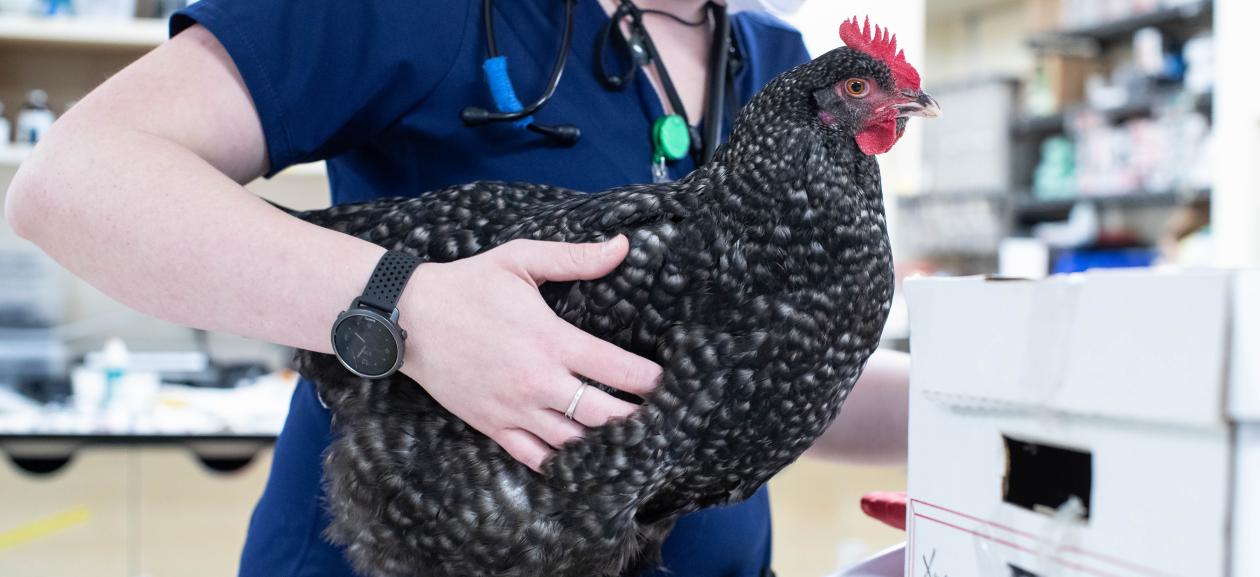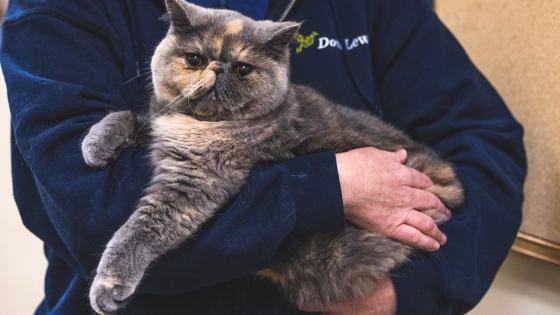
Understanding and Addressing Egg Binding in Chickens
Keeping chickens as pets comes with its joys and challenges. One issue that might ruffle feathers is egg binding. Our exotic veterinarians share more about the world of what egg binding is, the causes that might be at play, the telltale signs your chicken might be egg bound, and most importantly, what you can do to help your chicken out if they find themselves in this egg binding situation.
Unraveling Egg Binding in Chickens:
Egg binding, or egg dystocia, occurs when a hen has difficulty passing an egg. This can be a stressful and potentially life-threatening situation that requires immediate veterinary attention.
The Egg Binding Culprits – Causes:
- Calcium Conundrum: A lack of calcium in a chicken's diet can lead to weak eggshells, making it harder for the egg to move through the reproductive tract.
- Age Matters: Young hens and older layers are more susceptible to egg binding due to their reproductive systems still adjusting or aging.
- Obesity Obstacle: Overweight chickens may struggle with egg binding, as excess fat can interfere with the smooth passage of eggs.
- Genetic Factors: Some breeds are more predisposed to egg binding, so knowing your chicken's breed characteristics is essential.
Signs that Your Chicken Might be Egg Bound:
- Reduced Activity: If your lively chicken suddenly becomes lethargic or appears uncomfortable, it could be a sign of egg binding.
- Straining or Prolonged Nest Time: Frequent visits to the nest without laying an egg or visible straining may indicate egg binding.
- Abnormal Posture: An unusual stance, with the tail raised and the wings slightly lowered, may suggest discomfort. A penguin-like walk can also suggest discomfort.
- Changes in Vocalization: Listen for changes in your chicken's usual sounds. Distressed clucking or vocalizations can be a sign of trouble.
Taking Action to Address Egg Binding:
- Isolate and Observe:
- Place the affected hen in a quiet, warm, and stress-free environment.
- Observe her behavior closely for signs of discomfort, straining, or distress.
- Warm Baths:
- Gently immerse the lower part of the hen's body in a warm bath (not hot) for about 15-20 minutes.
- The warm water helps relax the muscles and may facilitate the egg's passage.
- Gentle Abdominal Massage:
- With clean hands, massage the hen's abdomen gently in a downward motion.
- Be cautious not to apply excessive pressure to avoid causing harm.
- Calcium Supplement:
- Offer a calcium supplement to support muscle function. Crushed Tums or calcium carbonate can be provided.
- Calcium helps with eggshell formation and may aid in the contraction of reproductive muscles.
- Hydration:
- Ensure the hen stays hydrated by providing clean water with electrolytes. Dehydration can exacerbate the condition.
- Dietary Adjustments:
- Offer a well-balanced diet with sufficient calcium and other essential nutrients.
- Include leafy greens, oyster shell, or crushed eggshells in their diet to boost calcium intake.
- Comfortable Nesting Area:
- Provide a comfortable nesting area with soft bedding to reduce stress.
- Avoid disturbing the hen unnecessarily during this time.
Important Note: While these home care measures may be helpful, it's crucial to seek professional veterinary advice. If the hen does not pass the egg after a reasonable amount of time or shows worsening symptoms, consult with a bird veterinarian immediately.
Prevention Tips for Your Chicken:
- Balanced Diet: Ensure your chickens receive a well-balanced diet, including a proper calcium-to-phosphorus ratio for strong eggshells.
- Regular Exercise: Encourage exercise to maintain a healthy weight and support overall well-being.
- Genetic Considerations: Be aware of your chicken's breed characteristics and potential predisposition to egg binding.
- Routine Health Checks: Keep a close eye on your chickens, monitoring for any changes in behavior, egg-laying patterns, or overall health.
Being a responsible chicken owner involves being attuned to your flock's needs. By recognizing the signs of egg binding and taking prompt action, you can provide the best care for your feathered friends.




